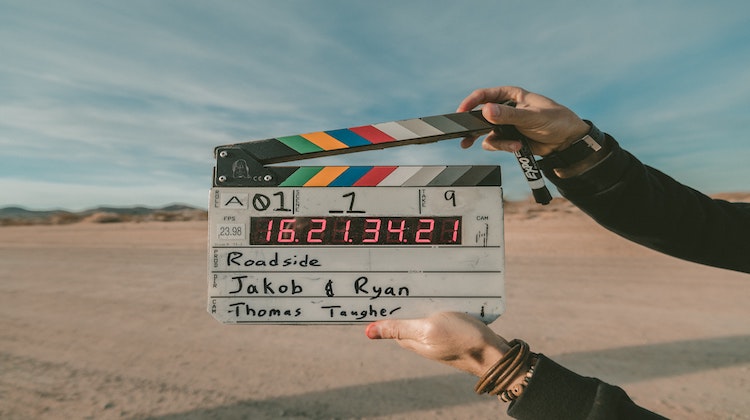Here are my favorite tricks and tips for making the most of this opportunity. It is for the intermediary and expert learners. My example for today is the poignant French-Canadian Incendies by Denis Villeneuve. It is available on Netflix (I also recommend its other opus Maelström and Polytechnique).
Why films?
Why is it so interesting to learn through movies? The first reason is that it is fun! When you are immersed in a spellbinding story, you absorb language without having to put in a lot of blood, sweat, and tears compared to academic studying. Secondly, in a film, you get to listen to a lot of jargon and phrases that pertain to the informal register. This is often absent in traditional teaching though it is a priority for most migrants and casual learners! Third, films offer a challenge that is hard to find elsewhere, that is, having to listen to and understand multiple characters who express themselves in their particular ways through a plethora of registers, phrases, tones, and accents, just like in real-life!
Materials
First of all, you will need to start your quest:
A screen, be it a phone, computer, or TV. I do not recommend going to the theatre (sorry mister Tarantino) unless you are an expert because you will not be able to control the playback. It is crucial to be the one in charge here!
A dictionary (physical or virtual) will help you find answers to your questions at a glance.
A notebook to take notes during screenings. It will help to memorize and learn better. As a bonus, you will get a much clearer and more structured understanding of the plot that is, in this case, quite sophisticated.
Subtitles
I must confess, I detest those pesky subtitles! Why? Because the strength of movies relies upon the visuals and sounds. When you constantly read, you miss out on most of the audiovisual storytelling. In essence, they are the training wheels on a bike. They serve a critical purpose, although we should free ourselves from them when possible.
I recommend watching the movie for the first time without any subtitles. Exhausting? Probably, you use all your resources to decipher what you see and hear. If it is too much, listen to the movie one scene at a time. Schedule one or two per day, for instance. After the first viewing, go back and repeat the experience using French subtitles. As you read them, you will encounter unfamiliar words. Look up the important ones in the dictionary. When you understand at least three-quarters of the dialogue, you get the right to repeat the experience using subtitles in your native language. Let there be light!
Characters
In your notebook, make a list of the main characters, in this case: Jeanne, Simon, and Marwal. Describe them briefly using vivid, specific terms while you discover them. Try to determine their age, profession, personality, and role in the story, for example:
JEANNE MARWAN (30)
Daughter of Nawal and twin sister of Simon, she teaches maths. She is sharp, sensitive, and determined to do anything to find the truth of her mother's story.
Registers
As you watch, listen and note the newfound vocabulary, you will be shocked to find that some words are nowhere to be found in the dictionary! This is most likely because they are part of the vernacular register. Try to identify which register the words belong to. Formal? Common? Familiar? Here are some examples:
"Ça va “tu”, “christ” de vie, courriel, inéluctable."
What do they mean? Which register do they belong to?
Reviews
Read reviews of the film in French, and find at least one that is mainly positive and one that is more negative. Compare them with your perspective. For example, user Catherine Coquillon writes on AlloCiné:
“Film coup de poing. Sans mièvrerie, superbement joué. On est scotché tout le long du film. Le dénouement est un choc. Mais quelle belle leçon d’amour et de pardon. Une histoire qui hante longtemps …"
How do you feel about it? Do you agree? Write your critique in 2 or 3 sentences and share it with the world!
Conclusion
Finally, if you want to pursue the treasure hunt even further, you can dig deeper by consulting the works and stories that inspired the film. In this case, check out the play Incendies by Wajdi Mouawad. To take it a step further, you can read about the life of Souha Bechara, a Lebanese activist who inspired the play. Cinema is not only a powerful and effective tool for acquiring French, but it is also the most thrilling, exciting one!
Click the pic below to meet Alexandre!








